Intuition is a quiet voice in our heads that has the potential to change our lives. Take a look at how to learn to trust your intuition to make life decisions.
Instincts, gut feelings, hunches, premonitions … all of these words point to a deep capacity that we all carry inside known as intuition.
The word intuition originally came from the Latin word intueri, which meant “to contemplate” or “to look within.” Without learning how to look and listen to our intuition, we tend to rely solely on the limited rational mind or external input from others, which can quickly lead us astray.
Related: Why You Should Understand Your Intuition
Many scientists and researchers are now referring to intuition as the highest form of intelligence we possess. In other words, intuition is no longer limited to the new age world of magical thought; it is increasingly being seen as a legitimate way to make judgments and decisions.
Unsurprisingly, spiritual traditions for thousands of years have all known and revered the powers of intuition. Buddhist, Islamic, Hindu, and Western philosophy have all connected intuition with planes of higher consciousness or the Soul.
The Advaita Vedānta for example (a school of Hindu thought) values intuition as an experience through which a person can contact and experience Brahman (Spirit/God).
Swiss psychiatrist Carl Jung also believed that intuition is a powerful force, once writing,
Intuition gives outlook and insight; it revels in the garden of magical possibilities.
Personally, I see intuition as the “Soul’s GPS” which can help us discover our life purpose, make wise decisions, and lead fulfilling lives.
In this article, I’ll show you how to trust your intuition and break through the fearful voice of the mind.
Related: 8 Tips To Strengthen The Voice Of Our Intuition
What is Intuition?

Intuition is a sudden and inexplicable feeling that arises within us. Also referred to as the instinct, sixth sense, inkling, hunch, and gut feeling, intuition is the mysterious force that guides, protects, and informs us.
The information we receive from our intuition is not usually available from our conscious mind and thus stems from the unconscious.
What common ways do we experience intuition? Usually, intuition emerges as a quiet inner voice or feeling that tells us to take this chance, go down that path, accept that opportunity, open that door, and so on.
Intuition also tells us what not to do, what to be careful of, when to be vigilant, and when to stop.
Related: How Intuitive Are You? Take This Test To Know Your Intuitive Abilities
How Does Intuition Arise?

Intuition is associated with the right side of the brain which is responsible for creativity, imagination, musical and artistic aptitude, and emotions. The left side of the brain, on the other hand, is connected to logic, reasoning, and critical thinking (we tend to favor the left brain over the right brain in the West).
Intuition stems from that nonlinear dimension of our minds, that part where unconscious connections and associations are made and arise within our conscious minds seemingly out of nowhere.
As Joseph Murphy, author of The Power of Your Unconscious Mind notes:
Within your subconscious depths lie infinite wisdom, infinite power, and an infinite supply of all that is necessary, which is waiting for development and expression.
Intuition is an amazingly powerful tool – a natural gift of our biology that is ready and available to us. However, it’s often ignored or forgotten by us humans. Yet there are so many exhilarating benefits from learning how to tap into it. We’ll explore some benefits next.

Don’t try to comprehend with your mind. Your minds are very limited. Use your intuition.
– M. L’Engle
Related: Birds As Omens When They Cross Your Path
Why Intuition is Powerful (and a Little Intimidating!)
All throughout history people have listened closely to the whispers of their intuition.
From Dr. Loewi’s intuitive discovery of the chemical transmission of nerve impulses, and Elias Howe’s invention of the sewing machine, to Isaac Newton’s theory of gravity, many great strides in existence have been attributed to spontaneous sparks of intuition.
But why should we pay attention to our intuition? I mean … it’s not like we’re planning on becoming world-famous physicists or inventors, right? Wrong. You don’t need to strive for either. Intuition is very down-to-earth and can help us in any area of life.
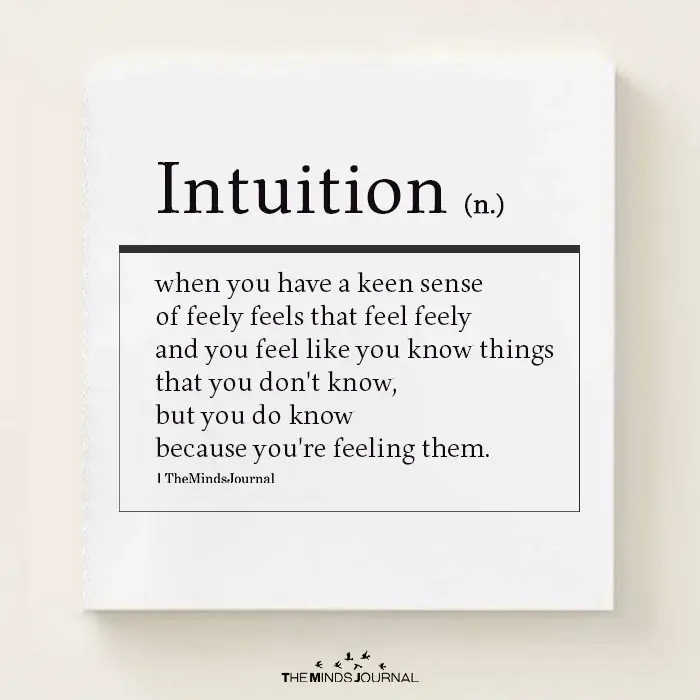
Here’s why it’s so powerful: learn to trust your intuition and making conscious decisions to utilize synchronicity
1. Intuition reveals deep truths in our lives
Either about ourselves, other people, or life at large, intuition helps us to develop a deeper understanding and insight. The result is that we feel more intelligently guided in our thoughts, feelings, and decisions.
2. Intuition helps us identify negative omens in our lives
Failure, financial collapse, death, emotional threat – trust your intuition, as it puts us in touch with our instinctive defense systems, helping us to avoid harm. (How eerie but cool is that!)
3. Intuition opens new paths to us
By helping us to identify positive signs in our lives, intuition opens new doors to us when we least expect it.
4. Intuition guides us and helps us to make wise decisions
By allowing us to know what decisions to make and when, intuition helps us to achieve a measure of confidence and peace of mind, assisting us in following paths that are true to ourselves: paths with heart.
5. Intuition helps us to live fulfilling lives
Truth hurts, but truth also helps us to wake up to the false, corrupted, and delusional lives that we sometimes lead and choices we occasionally make. Trust your Intuition! Because it is a bringer of truth, and thus a bringer of change and transformation. When we listen to it, we make decisions that ultimately help our lives to be genuine and fulfilling.
Related: 10 Simple Habits That Will Change Your Life For Good
How To Tell The Difference Between Fear And Intuition?
I sometimes FEEL that I am right. I do not KNOW that I am.
– Albert Einstein
Unfortunately, it’s very common for us to confuse the voice of intuition with the voice of fear. In order for us to make the most intelligent, successful, wise, loving, and meaningful decisions in our lives, we need to learn how to make a clear distinction between the two.
As a person who has a very strong “inner skeptic,” it has been difficult for me to loosen my rational brain in favor of my intuition. As a thinker, my mental voice has always been quite strong and persistent. I’m sure you have struggled with this to some extent too.
What helped me to distinguish fearful thoughts from intuitive guidance was to pay attention to how each inner voice felt in my body. Here are some main differences between fear and intuition.
Fear:
- Feels heavy and dark
- Emotionally-charged (e.g., “I need to do this or else ____ will happen!!”)
- Vague
- Makes you feel frustrated, overwhelmed, confused or anxious
- Causes you to ruminate and get lost in cycles of thought
Related: A Guide To Understanding The Fear Of Abandonment And Object Constancy
Intuition:
- Feels light
- Unemotional
- Crystal clear
- Makes you feel calm, inspired, and a sense of resolution
- Spontaneously arises and immediately feels “right” without further rational thought
By paying attention to these signs, you will slowly be able to distinguish paranoid thinking from neutral and intuitive knowing.
How to Trust Your Intuition to Make Big Life Decisions?

Intuition means exactly what it sounds like, in-tuition! An inner tutor or teaching and learning mechanism that takes us forward daily. It is a resource that, where recognized, has infinite potential.
– Sylvia Clare
Intuition is an essential life skill that we must all learn to refine and develop, preferably sooner rather than later. Without intuition, we get stranded in labyrinths of rigid, agitated, or obsessive thoughts that limit our capacity to see clearly. The less clear we can see, the more likely we will make bad decisions.
Related: The Three Parts Of The Mind: How It Affects Your Decisions & Your Life
When we trust our intuition, we experience a clarity that helps us to make the most beneficial choices for our lives.
We can learn how to trust our intuition in nine main ways:
- Silence your mind
- Ask yourself, “How do I feel about this decision?”
- Focus on the sensations in your body
- Explore whether fear is fuelling you
- Formulate your conclusion, and live both scenarios
- Don’t allow pressure to bias you
- Ask for guidance
- Develop more self-awareness
- Clear your third eye chakra
Below I will explore each of these points more in-depth and help you learn how to trust your intuition to make big life decisions:
1. Silence your mind
Often the mind tends to hijack our decision making processes. While it is important that you use rational thought, your usual thinking is often subject to prejudice, past beliefs, external influences (“peer pressure”), and fear.
Related: What Does An Introvert’s Silence Speak?
To access your intuition, you need to clear your mind of thought. In order to clear your mind, I recommend that you meditate, listen to some relaxing music, or focus on mindful breathing. It is very difficult to listen to your intuition when you’re in a stressed-out state of mind.
For example, you might like to try breathing deeply for a few minutes. Breathe in through your nose and allow your belly to gently expand. You may like to slow your breath to the count of four and breathe in slowly for four seconds, hold for four seconds, and breathe out for four seconds.
Try doing any practice that relaxes and stills your mind. Only once you are calm and centered can you accurately access your intuitive power.
Related: How Practicing Mindfulness Improves Your Relationship
2. Ask yourself, “How do I feel about this decision?”
Once you have relaxed your mind and body, inwardly ask yourself, “How do I feel about this decision?” Notice the first feeling, sensation, word, or image that arises within you. You might like to write down whatever appears and reflect on it some more.
3. Focus on the sensations in your body
We can never be deceived by our bodies because our bodies can never lie. No matter what elaborate stories or theories we concoct, our body will always reveal the truth of the matter.
In order to connect with your intuition, try listening to your body. Think about the decision you have to make, and focus on your body’s response.
For example, if you want to quit your job, you might notice a sensation of relief flood your entire body (which is a sign that you should quit your job!).
Alternatively, if you are thinking of moving to a certain town, you might feel your shoulders and neck tense up (which is most likely a sign that you shouldn’t move there).
By using mindful body awareness, you will be able to connect more freely with your intuition.
4. Explore whether fear is fuelling you
Fear has a sneaky way of disguising itself as intuition. When we are fearful, we tend to make rash decisions or believe that we are “following our intuition” because of how strong the mental voice can become.
When you are faced with an important decision, try writing down all of your fears surrounding the situation on a piece of paper. Making your fears visible will help you to determine whether the voice within you is driven by fear or clear knowing.
5. Formulate your conclusion, and live both scenarios
Come up with a range of solutions and mentally live out each scenario. Visualize each choice as vividly as you can, then pay attention to how each option feels. Whichever option feels the most “right” is the choice you need to go for.
6. Don’t allow pressure to bias you
Are you putting a lot of pressure on yourself? The pressure to make a “quick decision” tends to inhibit the flow of intuition. While intuition can work under strenuous circumstances, if you have the option to slow down, please do.
Just because you aren’t obsessing over something doesn’t mean the thought isn’t bubbling in your subconscious mind. Sometimes putting decision-making on the “back burner” helps you to relax, adopt new perspectives, and open more easily to the presence of your intuitive knowing.
7. Ask for guidance
Intuition is seeing with the soul.
– Dean Koontz
When I struggle to access my intuition, I say a prayer of guidance asking my Soul for support. If you are struggling with accessing your intuition, say a small prayer to whomever or whatever you believe in (e.g., your Higher Self, Soul, Spirit, God, Allah).
You don’t need to be religious to pray. Prayer is condensed energy and intention which will help you to focus your willpower. Saying a prayer is a powerful way to enhance your intuitive prowess.
8. Develop more self-awareness
Self-awareness is the ability to be aware of your feelings, thoughts, and behaviors and the way in which they impact you and the people around you.
The more aware we are of what goes on inside of ourselves, the easier it will be to identify the quiet voice of our intuition in the first place. Mindfulness, meditation, and introspection all assist in developing self-awareness.
Related: How Self-Awareness Can Improve Your Relationships?
9. Clear your third eye chakra
If you believe in chakra healing, focus on balancing your third eye chakra, which is the center of your intuitive abilities.
If you struggle with problems such as negative thinking patterns, overthinking, paranoia, or anxiety, you most likely have a third eye chakra problem. There are many ways to unblock this chakra, and we explore them in our article on how to open your third eye.
Intuition FAQs
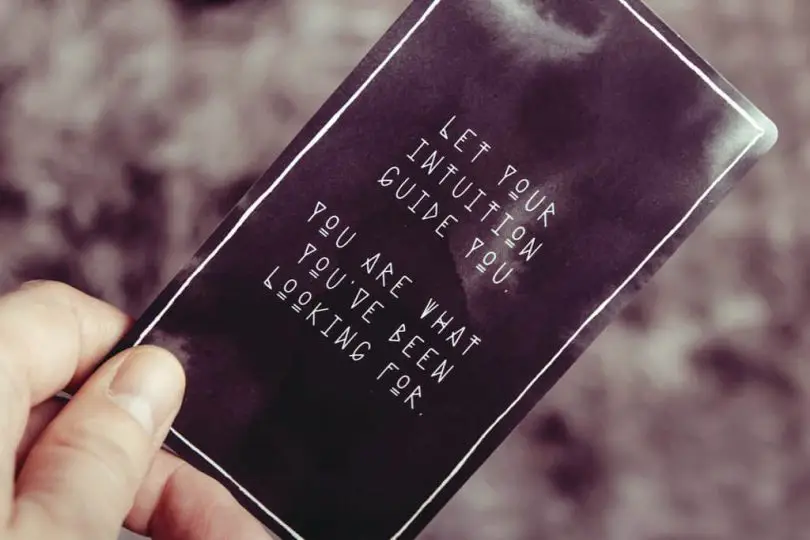
There are so many facets involved in learning how to trust your intuition. If you’re still in need of guidance, the following Q&A’s might help:
Can your intuition be wrong?
This is a tricky question to answer, but in short, pure intuition is never wrong. But the intuition that is tainted by thoughts can be wrong.
As intuition stems from the unconscious and universal mind (also known as the ‘Collective Unconscious’) that has access to a tremendous amount of information, the insights it relays are far more accurate than pure rational thinking.
When intuition is unclear and foggy, it’s more likely for it to be wrong or misguided. This is why learning how to distinguish the voice of fear from the voice of intuition is crucial.
Related: 7 Chakra Cleansing Herbs For Empaths and Healers
What does intuition feel like?
The feeling of intuition varies for everyone. For some people, it will be very physical. It’s common, for example, to experience tingles down the spine, a rush of energy, goosebumps, a pit in the stomach, and so on.
Others experience intuition as something more mental. For instance, some people get visual flashes (such as premonitions or visions) and others get a quiet (and in some instances loud!) inner voice arising.
What is an example of intuition?
There are endless examples of intuition out there. Intuition, for example, can arise in moments before a crisis directing a person to do or not do something that can have dire life/death consequences.
Many individuals have intuitive feelings of dread or joy before making conscious life decisions. Intuition can also emerge in everyday situations, such as what present to buy someone, what’s really wrong with your partner or best friend (“something doesn’t feel right”), and what route to take to work.
Is everyone intuitive?
Yes, everyone has the capacity to be intuitive. It’s just a matter of learning how to tap into your unconscious mind. While intuition might come more easily to some, it’s ultimately a skill that needs to be honed and developed.
Related: How Intuitive Are You? Take This Test To Know Your Intuitive Abilities
Intuition is a small glimpse into the enormous magnitude of wisdom and intelligence possessed by your largely secret and untapped unconscious mind.
By learning how to silence your mind, connect with your body, identify the fear, and clear energy blockages, you will find it easier to access your intuition in any life circumstance.
And if you want to strengthen your intuition, here’s a video for you:
Written by Mateo Sol
Originally appeared in LONERWOLF
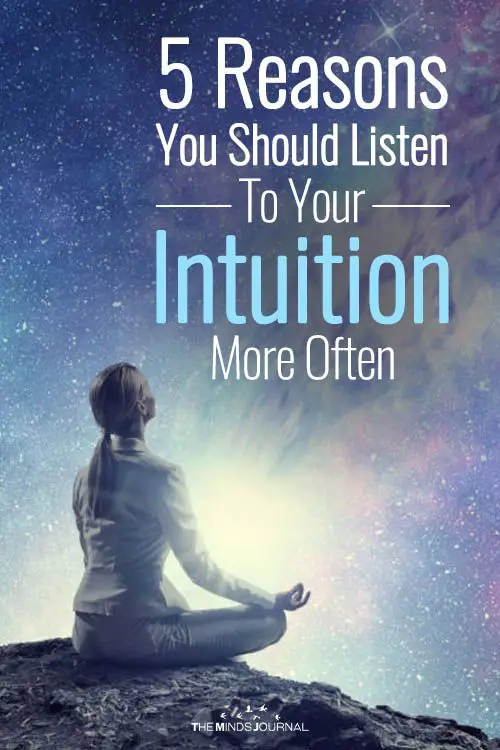
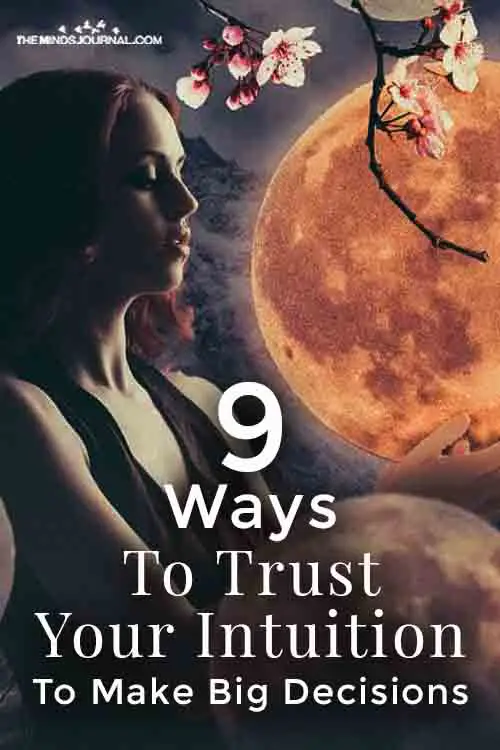
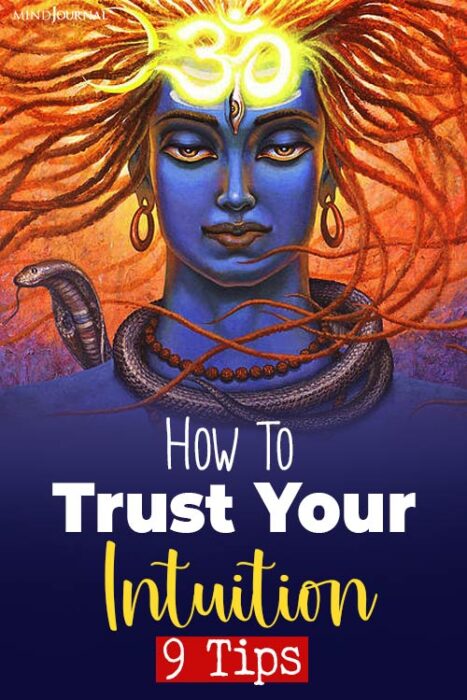
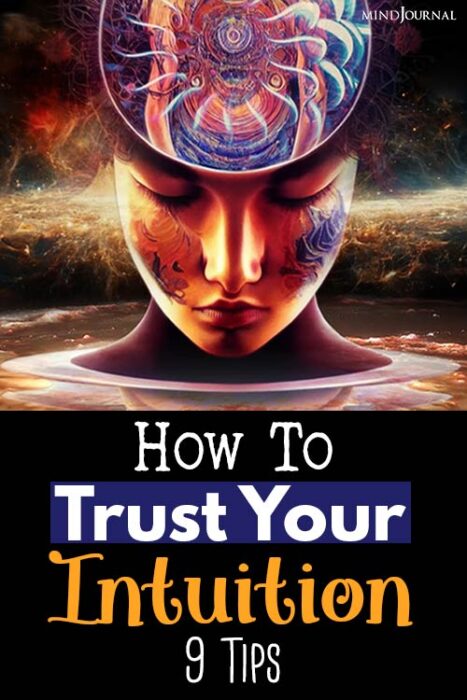
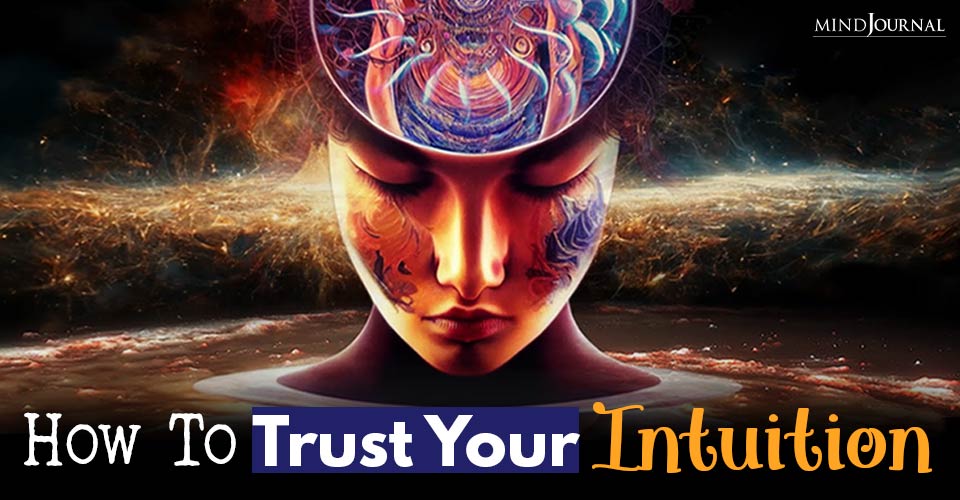
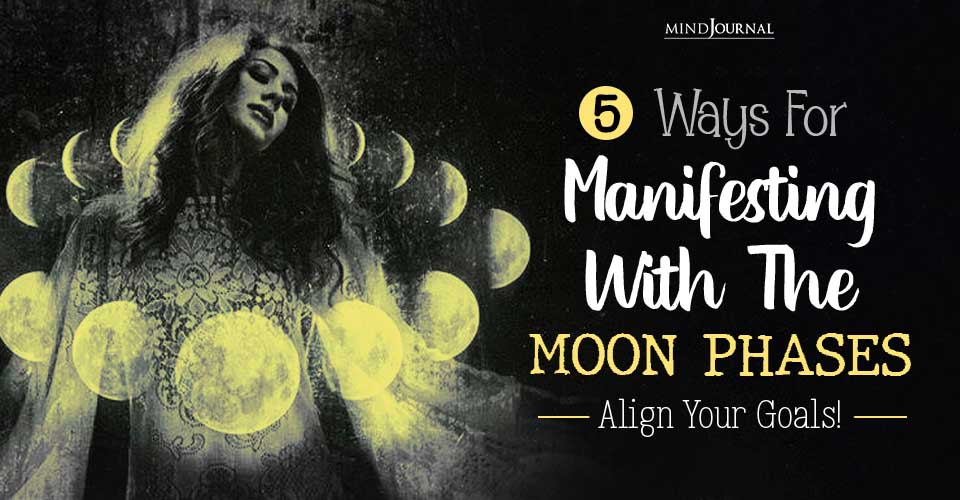
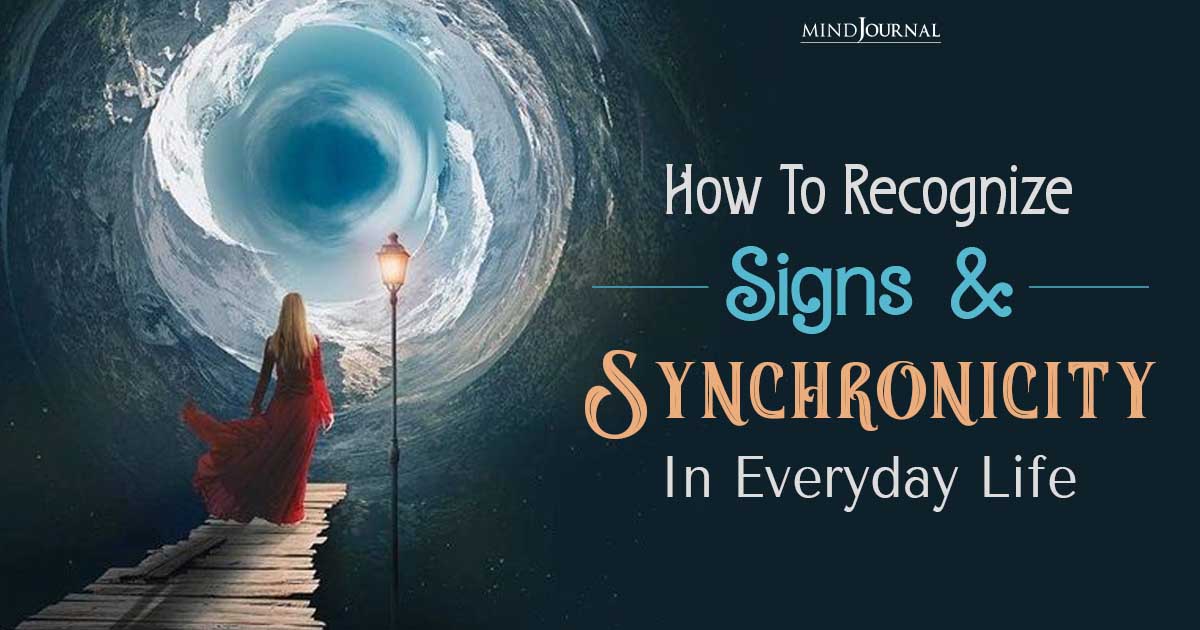
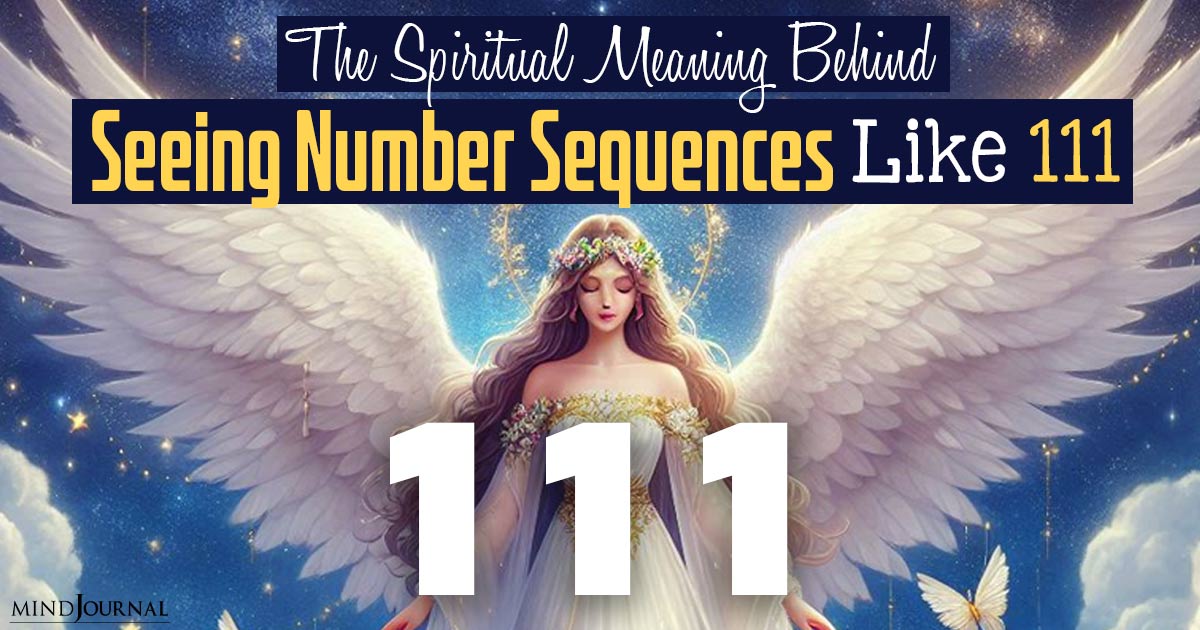
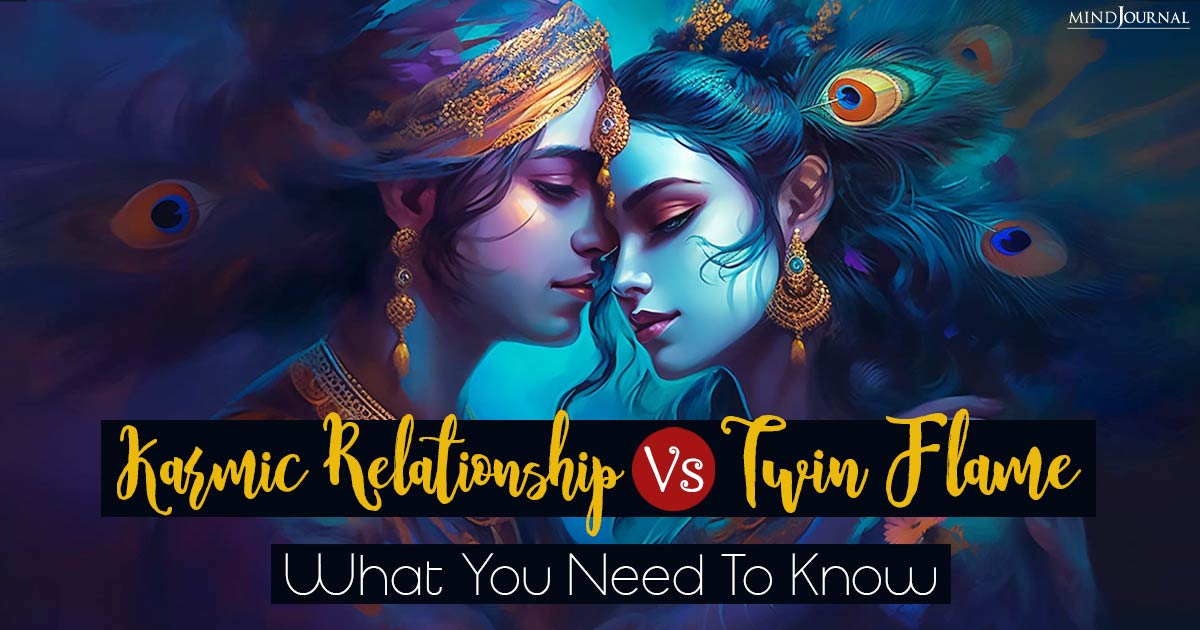
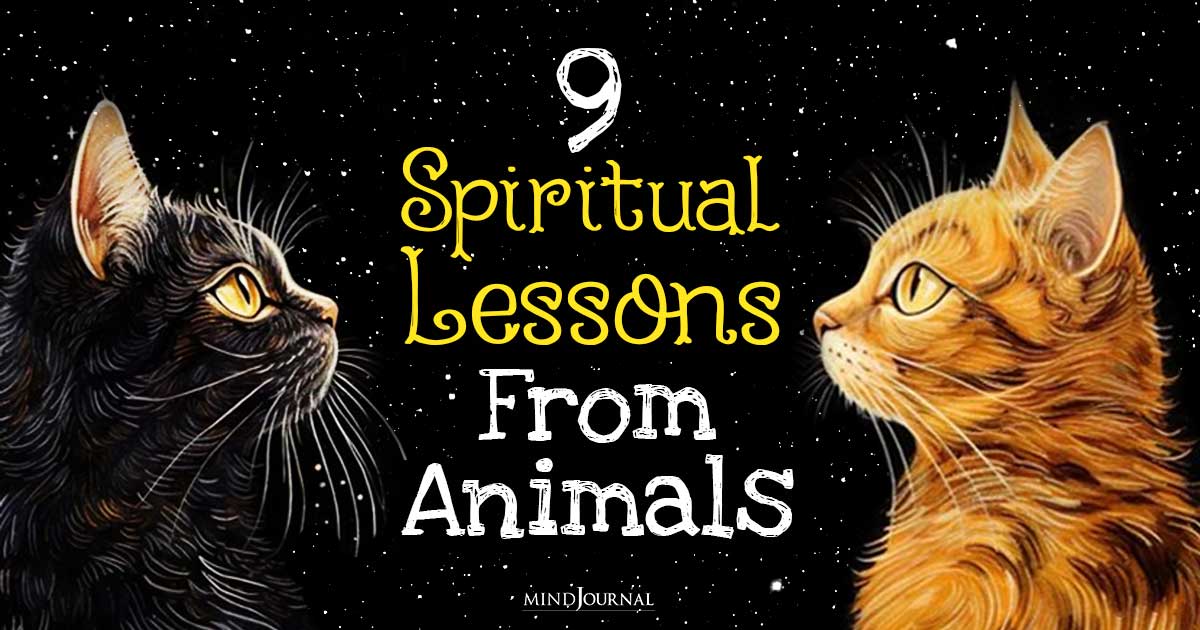
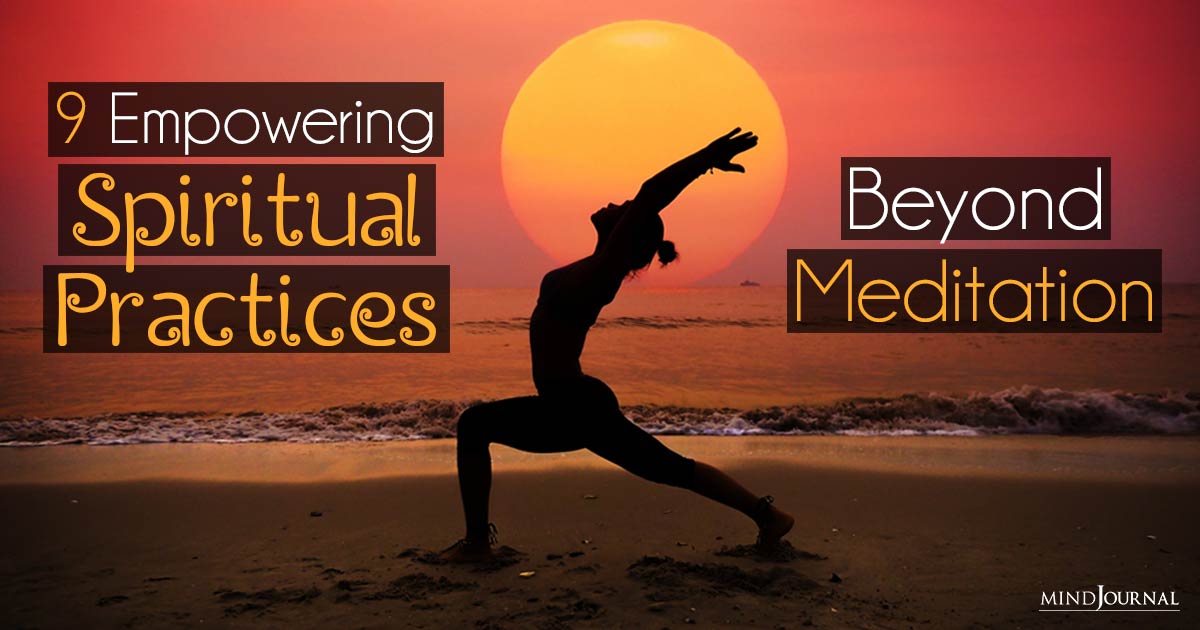

Leave a Reply
You must be logged in to post a comment.